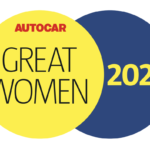BMW recently announced that it will be freezing electric vehicle (EV) production in the US in May due to the uncertainty surrounding new auto tariffs. Despite this pause, the luxury automaker has reassured customers that it will not be raising prices on most imported vehicles, at least for now.
The decision to postpone EV production in the US comes as BMW, along with other major automakers, prepares for potential changes under the Trump Administration. With the recent 25% tariff on vehicle imports, BMW is taking a cautious approach to its production plans in the country.
Although BMW has seen success with its electric vehicles, including the i4, i5, i7, and iX models, all of which are currently built in Germany, the uncertainty surrounding tariffs has prompted the company to reassess its strategy. In the first quarter of 2025, BMW sold 13,538 EVs in the US, marking a 26% increase from the same period in 2024. The i4 was the top-selling model, with sales surging by 57% to 7,125 units.
Sebastian Mackensen, President & CEO of BMW of North America, emphasized that the company remains in a strong position in the US market, where the majority of vehicles sold are also assembled. Despite the production pause, BMW has assured dealers that prices on most imported vehicles will remain unchanged through June, with the exception of the 2 Series and M2 performance coupe.
The decision to freeze EV production in the US aligns with a broader trend among automakers, as companies like GM, Volvo, Mercedes-Benz, Volkswagen, and Stellantis have all recently withdrawn their financial guidance due to the uncertainty surrounding tariffs. Ford CEO Jim Farley acknowledged the challenges posed by the current trade environment, stating that automakers are working to navigate these changes and make decisions that benefit the country.
As the automotive industry continues to adapt to evolving trade policies, it is likely that more companies will take similar measures to adjust their production and pricing strategies accordingly. The impact of tariffs on the industry remains a key concern for automakers, who are striving to find solutions that align with both economic realities and customer expectations.







